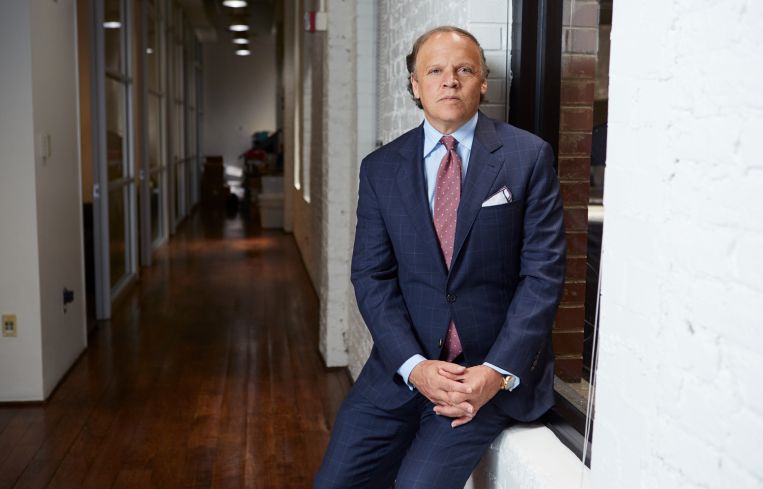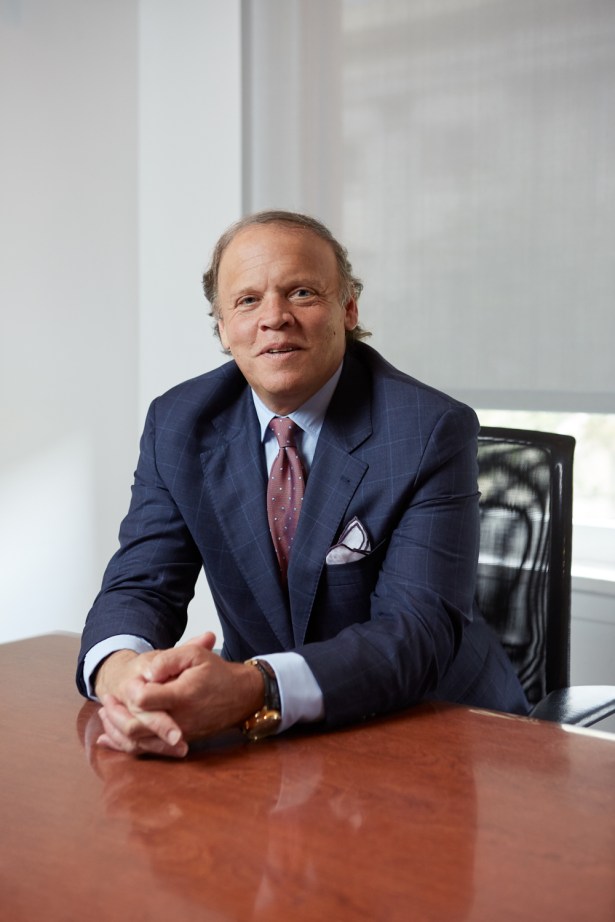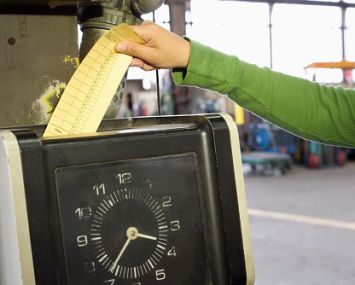On Your Mark: DC Legend Mark Ein on Buzzard Point, Navy Yard and Building Kastles
By Christina sturdivant-Sani June 20, 2018 6:09 pm
reprints
Mark Ein isn’t just an investor and philanthropist: The Wharton School of Finance and Harvard Business School graduate is a proud son of the Washington, D.C., area.
During a recent interview with Commercial Observer, he was quick to share that his Leland Investment Co., which holds his personal investments, is named after the junior high school he attended in Bethesda, Md. The moniker for Rollingwood Real Estate, his company that owned a parcel of land in Southwest’s Buzzard Point, came courtesy of his elementary school in Chevy Chase, Md. “I like to remember where I came from and use those schools as names of my holding companies,” said Ein, seated in a conference room at 509 7th Street NW—the headquarters of Venturehouse Group, which is the holding company he said he’s most recognized for.
It’s no wonder that when the Washington City Paper was put up for sale last October, Ein agreed to purchase the troubled alt-weekly (he paid $50,000 including the paper’s office lease, according to Washingtonian Magazine).
The 53-year-old married tennis-enthusiast, said he founded the Washington Kastles World TeamTennis franchise in 2008 because he thought “we could use more fun stuff in D.C. that could bring our community together.” During the team’s first six years, crowds took the stands at two “amazing outdoor stadiums,” Ein said, referring to a downtown spot where luxury complex CityCenterDC now exists and another location along the Southwest waterfront that welcomed the massive Wharf development last year. “We were really blessed to build the stadiums in those iconic places that are now two of the biggest and best real estate developments, not just in Washington, but maybe in America,” said Ein, who lives in McLean, Va.
Venturehouse’s portfolio includes XM Satellite Radio, one of multiple telecommunications companies that Ein invested in early on. It also holds Kastle Systems, a leader in commercial building security systems, which he bought in 2007 and grew to serve over 10,000 buildings and tenants with 460 million square feet of office space.
While the pleasant but guarded businessman is less hasty to disclose the financials of specific deals, he did confirm that he has founded or invested early in six companies that have been worth over $1 billion and led over $1.5 billion of private equity, venture capital and public company investments.
Commercial Observer: How did you acquire the 25,612-square-foot Buzzard Point parcel from the electrical contracting company that you eventually sold to the city for a little over $10 million in 2015 as part of the D.C. United’s new stadium development?
Mark Ein: I developed a strategy that I wanted to invest in real estate in the Washington community where I grew up and plan to live for the rest of my life. I wanted to take an extremely long-time horizon—at least a multi-decade view—so I wanted to think of areas where taking that time frame would be most advantageous.
I looked at emerging parts of town and was first introduced to Buzzard Point probably 10 years ago and made a small investment. Then I was introduced to the person who owned the site that I ultimately ended up purchasing. It actually took a couple years, but eventually it was at the point where he wanted to sell and we had become comfortable with each other. He did talk to a pretty wide set of people but was comfortable that I could act quickly and close with my own capital and so it came together.
How would you describe the negotiation process when you sold the land to the city?
We offered a wide range of options to be part of the development or other parts of what was going on there. In the end, they wanted to just acquire it and once everyone fully understood where each party was coming from, it happened pretty quickly.
Do you own any other properties in the city?
I don’t. I planned to build a headquarters for Kastle Systems on that land but obviously the city’s plans to put a soccer stadium there preempted that. And by the time I started looking for other opportunities at Buzzard Point, prices had come up and the opportunity to do more passed us by.
So what are your thoughts on how Buzzard Point, and even Navy Yard, have developed over the past decade?
When I first went down to Buzzard Point in 2005 to look at opportunities, what I saw was one of the greatest pieces of real estate in Washington, D.C. If you just saw a map and ignored historic uses, which in Buzzard Point was industrial, you looked at the waterfront location, the views of the city and its proximity to so many parts of town.
As things developed over the years with the emergence of the ballpark area on one side and The Wharf on the other, you could just see that progress was going to hit Buzzard Point—it was just a matter of how long it took. That’s why with my time frame, I was fine if it took a long time. And we owned a warehouse that we were leasing to the city bikeshare company so we had a way of carrying the land for as long as we needed.
So the combination of really extraordinary core characteristics of that real estate combined with the progress of development around it gave me a huge amount of confidence that Buzzard Point was going to be a fantastic place to own property and my conviction for that has only accelerated as Buzzard Point itself has seen development with the soccer stadium.

Have you been surprised by the development of any other neighborhood in D.C.?
Yeah, it’s extraordinary how fast so many emerging neighborhoods in Washington have developed. It really has exploded in the last 10 years in ways that I don’t think anyone could have imagined. I think many cities have an emerging neighborhood—maybe two—but we have so many from The Wharf to Navy Yard to H Street to Shaw and now Wards 7 and 8 are next. I think part of it is because you have the height limit, you can’t just have one area that sucks up all the development so it has to spread out, which personally I think is a good thing.
It’s an incredibly exciting time to be in the Washington real estate community or Washington business community more generally.
It terms of Wards 7 and 8, I’ve talked to multiple people in the D.C. commercial real estate community who said they don’t quite get what’s happening in places like Anacostia and Congress Heights. Do you understand what’s happening on that side of town?
I think someone would have said the same thing about Shaw 10 years ago or H Street or Navy Yard. And for sure if you went to Buzzard Point when I went there—you had a power generation plant that sounded like you were on the runway at [Ronald] Reagan [Washington National Airport] when it went off, and a salvage yard and industrial uses—it would have been inconceivable that it would become a place with expensive condos on the water.
So when you look at things, you can’t look at where they are, you have to look at where they’re going. You have to see if there’s a catalyst that becomes the spark that gets things started. And I do think that St. Elizabeth’s campus can be one of the catalysts. [The city is bringing a $65 million facility that will be a practice center for the Washington Wizards basketball team and home of the Washington Mystics.]
I read that when you bought Kastle Systems in 2007 when it wasn’t up for sale. Does that speak to your negotiation skills or business acumen?
Acquiring Kastle Systems was really one of the greatest opportunities I’ve had in my career. And as you said, it wasn’t really for sale when I met the founder Gene Samburg who had built an incredible business over 30-plus years. He was ready to retire and it was important for him to find the right caretaker for his business—someone he felt comfortable basically entrusting his life work in. And he and I instantly hit it off in our first meeting. I had such an affinity for him and his passion for this great company that he had built and I think he felt a really high level of comfort with me.
So for a company of reasonable size, I’d be hard pressed to think of a transaction that came together more quickly with that. For Gene and I, it only took a week to figure it out and we closed within a month. That was just that instant level of comfort I think we both felt right at the beginning.
How much did you pay for the company?
We have not disclosed that.
I know that Kastle does security for commercial real estate properties, but has it taught you anything about the broader scope of commercial real estate in D.C.?
Over the last 10 years, the way space is being used by office tenants has changed dramatically. Obviously law firms, as an example, are a big user of space in Washington and the way they view their real estate today versus 2007 is radically different: smaller offices—you obviously don’t need a big law library to review paper documents—more flexible space, more interoperability between different offices.
And what we’ve done at Kastle is embrace those trends and enable them for law firms through a better security system that works across all their offices.
Jumping to the Washington City Paper, do you see yourself as playing a role in saving local journalism with that purchase?
[Laughs.] When I started this, I really just wanted to save an important local institution that’s been an important part of our community for 40 years. But as I got into it, it’s interesting because there really is a bit of a crisis in local journalism—people are more focused on issues at the national level but there’s a much deeper crisis at the local level. And I think that we have some ideas that will enable us to make the City Paper work well. That’s our first objective but my ideal is that we can use what we learn here and hopefully impart that to other local papers around America.So it seems like you’re hands on… are you more hands on than you thought you were going to be?
I’m not hands on. I have zero influence on editorial—I don’t touch that. What I’m trying to do is put the right team and strategy in place then bring whatever relationships I have. It’s consistent with all of the things that we do: find interesting businesses then try to be a catalyst to make them even better.
Have you disclosed how much you purchased the paper for?
We have not.
Early in your career you worked for the Carlyle Group as a principal and Goldman Sachs as a financial analyst in real estate. Can you tell us about those positions?
I always have said that my three years at Goldman Sachs was probably the inflection point of my career, if not my life. The standards at Goldman Sachs were the highest that you could ever experience and they do a really good job of taking their young people and making sure they’re fully immersed in how to execute at a world-class level.
It took me from someone who had an interest in business and [turned me into] the best professional I could be. It was like business boot camp; they beat world-class professionalism into you. It was grueling and unbelievably hard work but I’m really grateful that I had that experience. And I had a lot of good mentors who took an interest in me and they’re still friends of mine.
And what about the Carlyle Group?
The Carlyle Group was also another incredibly important experience. It enabled me to come home, which was always my dream. In 1992 when I got out of business school there weren’t a ton of opportunities in the business community here if you weren’t in real estate, frankly. Carlyle was five years old but it was clearly going to be an important firm and I was really lucky that I ended up getting one of the two jobs for people out of business school that year.
It allowed me to work closely again with great mentors and teachers including the founders because the firm was only 30 people at the time. And it was very entrepreneurial, which was really helpful for me. We were early investors in a whole set of telecommunications opportunities, particularly in the wireless sector and also the cable sector. It was really a wonderful experience being there in those days.
Here’s another question you’re not going to answer: what’s your personal net worth?
[Laughs.] I love you for trying these things. I’m definitely not going to answer that.Subscribe to CO’s Washington DC Weekly Newsletter for more stories like this at commercialobserver.com/subscribe


